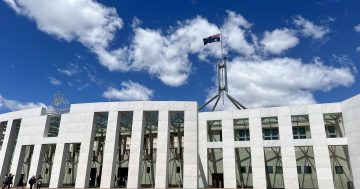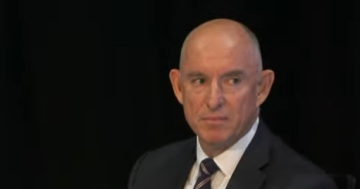
Justice Paul Brereton previously served on the NSW Court of Appeal and led the inquiry into allegations of war crimes by Australian troops in Afghanistan. Photo: ADF.
Attorney-General Mark Dreyfus has announced the appointment of Justice Paul Brereton as commissioner of the National Anti-Corruption Commission (NACC).
The appointment comes after Justice Brereton led the inquiry into allegations of war crimes by Australian troops in Afghanistan. Justice Brereton most recently served on the NSW Court of Appeal and is a Major General reserve officer in the Australian Army.
His report into the alleged war crimes was published in 2021. It found 19 soldiers warranted further investigation over the deaths of 39 prisoners and non-combatants.
“As the inaugural commissioner of the National Anti-Corruption Commission, I will be nominating to the Governor-General one of Australia’s most respected and highly qualified investigators, Justice Paul Brereton,” Mr Dreyfus said in a 29 March release.
Other appointments to the NACC include deputy commissioners Nicole Rose and Ben Gauntlett, and Gail Furness SC to act as inspector. Ms Rose was most recently the chief executive of financial watchdog AUSTRAC, and Dr Gauntlett was at the Human Rights Commission as disability discrimination commissioner. Also announced was NACC chief executive Phillip Reed, previously CEO of NSW’s anti-corruption commission.
Mr Dreyfus said Jaala Hinchcliffe, who leads the Commission for Law Enforcement Integrity – which will be rolled into the NACC – would serve as interim deputy commissioner until a third appointment was made.

Attorney-General Mark Dreyfus described Justice Brereton as one of Australia’s most respected and highly qualified investigators. Photo: Mark Dreyfus Facebook.
“I know these are the people with experience and capacity to guide the National Anti-Corruption Commission through its first months and years of operation, and set it up for future success,” Mr Dreyfus said.
The NACC was established by the Albanese Government in response to what it said was declining trust in the government and public institutions by the Australian people.
An online fact sheet states the potential for corruption within government contributes to the decline in trust. It further states corruption can involve the misuse of government resources, which means there is less available to provide the services Australians need, such as health care, social security, education and national security.
The NACC will seek to prevent government corruption by investigating it thoroughly and telling the public what is discovered, and by educating the public sector (and the public) on how to prevent it in the future.
It will be an agency independent from government that will prevent, detect, investigate and report on serious or systemic corruption in the commonwealth public sector. The government will not be able to tell the NACC what to or what not to investigate, nor how to do its job.
The NACC will also have the power to investigate conduct that occurred before it was established; to enter commonwealth premises and acquire commonwealth information without a warrant; compel people and organisations to provide documents and items and allow the search of their property; access covert investigative capabilities; conduct private hearings and; if it is in the public interest, conduct public hearings.




















